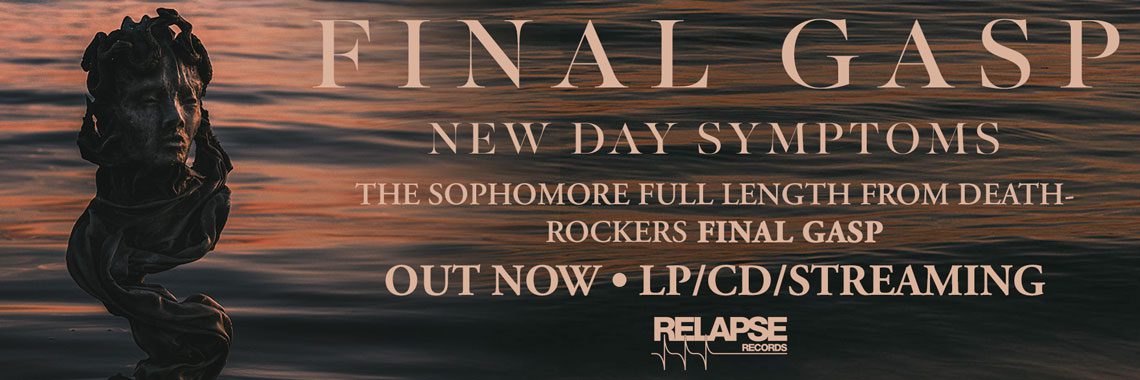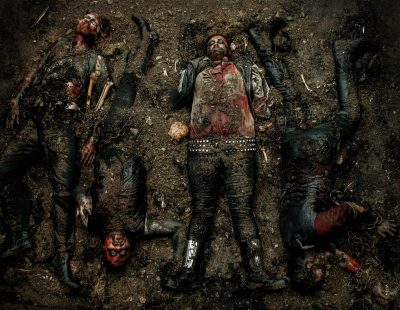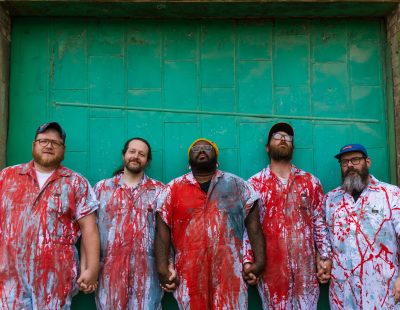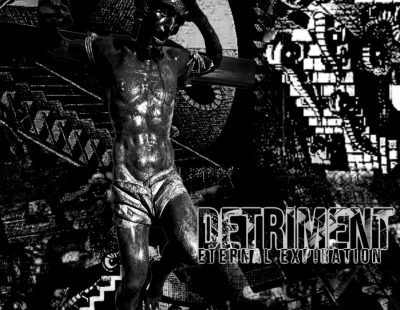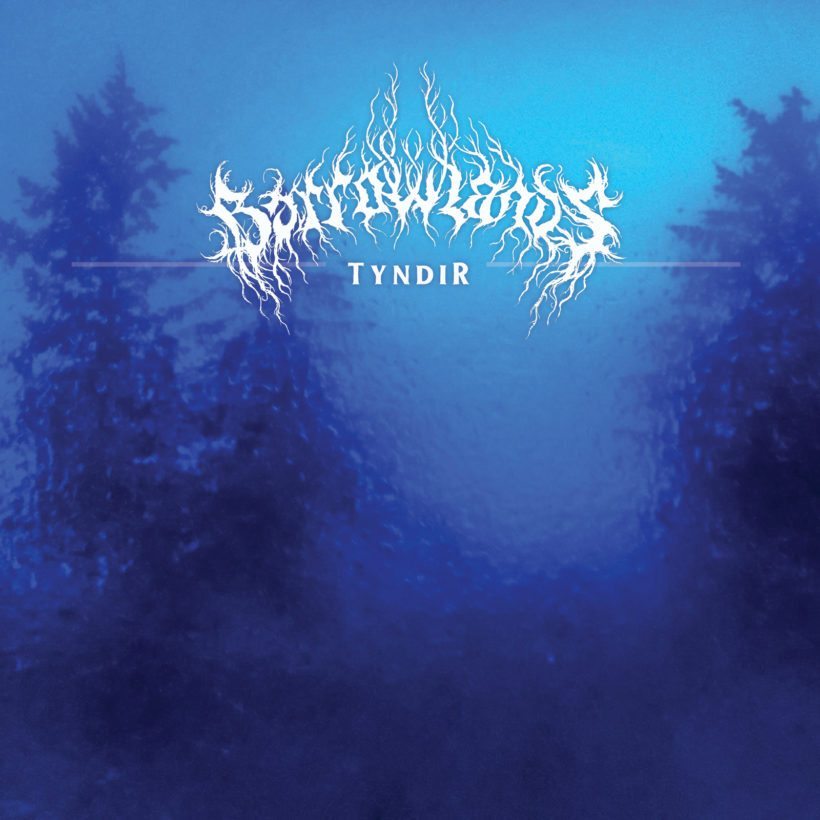
Portland’s Barrowlands endured two lineup changes in the time since their 2014 debut, Thane, welcoming into the band guitarist Jay Caruso and bassist Chris Gaye for their sophomore album, Tyndir. Despite those hurdles, Barrowlands have returned with a full-sounding black metal record that exudes melody and a larger-than-life sound.
The release of Tyndir on October 27 will see Barrowlands join the Vendetta Records family, becoming labelmates with a number of other USBM forces including Woe and Anagnorisis. You don’t have to wait until tomorrow, though: enjoy a full stream of Tyndir now and keep reading for a brief interview with Barrowlands about the additions of Caruso and Gaye, playing black metal with a cellist in the band and the themes they explored on Tyndir.
Tyndir is your follow-up to 2014’s Thane. How has Barrowlands changed as a band since then and how does that reflect on Tyndir?
The delay between Thane and Tyndir was mostly due to changes in the band line up. Jake and Joe were both excellent players so it took us a while to find the right replacements for lead guitar and bass. With the addition of Jay and Chris we found players that shared a common vernacular with us musically yet also brought their own musical personalities to the table. This increased diversity of influences added new colors to our repertoire which translated to musical conversations less constrained by genre expectations. With Tyndir we found ourselves able to keep one foot in our Black Metal heritage while freely expressing some less traditional terrain.
You recorded Tyndir with legendary engineer Billy Anderson (Swans, Melvins, Neurosis, etc). How did Anderson help you realize the sound you were striving for on this album?
Billy was great to work with. His knowledge of the recording process allowed us to track more comfortably and achieve, what we feel is, a more complex mix. He just has a feel for what our genre should sound like and finding the right sounds came effortlessly with his guidance. Whether he was tweaking our amps during the re-amp sessions or working in the large room to give a certain fullness to the cello or drums, Billy always brought a little extra something to the table. We are honored to have had the chance to work with him.
I read that Tyndir has a theme running throughout. Can you elaborate on what that theme is?
Lyrically, Tyndir deals with discomfort and discontentment with society and the current state of the world all the while acknowledging that this too will pass. In the scheme of things, humankind is fleeting while nature is ancient and patient and will eventually reclaim all that we now claim as ours. Musically, our approach was more cinematic. We were attempting to create a musical journey and on that trip the sonic landscape would change significantly.
In addition to the standard guitar/bass/drums/vocals that are generally expected out of a metal band, Barrowlands counts cellist Ray Lorenz among your ranks. How does the cello affect Barrowlands’ sound? How do you write black metal that uses a cello?
Texturally, we think of the cello as an additional rhythm instrument. Oftentimes Ray is covering ground traditionally covered by another guitarist. There are times when the cello is able to take on more of a lead role and with Tyndir we consciously tried to create parts where the instrument would have more room to breathe and be heard. The cello can be in the same harmonic range as the guitars but Ray has a knack for when he should stay low on the fingerboard or take it up an octave and float upon the rhythm section. If you listen to the opening riffs of “Empty Hands Grasping,” you can hear how the cello lifts you when he moves up the neck playing a melody that would be handled by a tremolo picked guitar in a more traditional setting.
You can purchase Tyndir through Vendetta Records.

